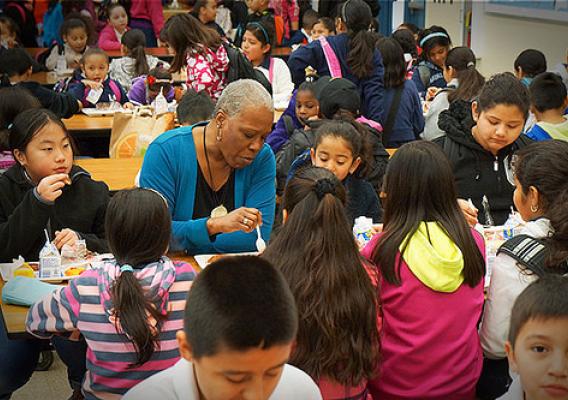Local school wellness policies are an important tool for parents, local educational agencies, and school districts to promote student wellness, prevent and reduce childhood obesity, and provide assurance that school meal guidelines meet federal standards. They help communicate nutrition guidelines for all foods available on the school campus and include goals for nutrition education, physical activity, and other activities that help improve overall student wellness.
While visiting schools across the nation, I have seen firsthand how important local wellness policies are, and we here at USDA aren’t the only ones who think so. Over two dozen national associations and organizations have joined the USDA Food and Nutrition Service (FNS), the US Department of Health and Human Services' Centers for Disease Control and Prevention, and the US Department of Education in sharing information and resources about local school wellness policies. In fact, this group has issued a joint statement recognizing the role schools play in promoting wellness among staff, students, and families.








